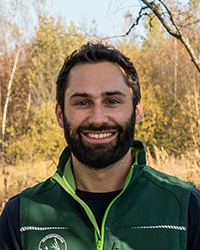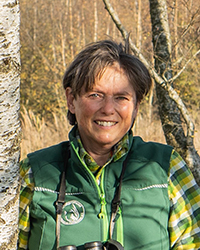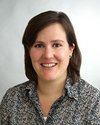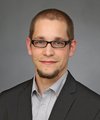In Germany, MIXED is collaboratively implemented by the Institute for Rural Development Research and the Swabian Donaumoos Association. The project is working with two groups of farmers practicing MiFAS (Mixed Farming and Agroforestry Systems) in different ways.
Agriculture in Germany is practiced on half of the total land area and can be characterized as specialized, highly productive and intensively managed, though with a high degree of local and regional variability. Animal feed is produced on almost two-thirds of the agricultural area. 95% of the 1.4 Mio hectare peatland areas in Germany are degraded. 65% are still used for conventional agriculture, 13% for forestry and by that lose their high potential for climate protection. Drained agricultural peatlands are responsible for 80% of CO2 emissions from agricultural land use in the EU.
A landscape area of about 10.000 ha (with 2200 ha of peatland, and 2700 ha of hillside and floodplain forest) is managed by the Swabian Donaumoos Association. This landscape conservation association is located in Bavaria, Germany, and facilitates the development of a close partnership between agriculture and nature conservation. The focus is on preserving and developing an open, ecologically intact wetland landscape. The management of the peatland is based on a compatible land use for nature conservation and climate change protection. The Swabian Donaumoos Association provides experimental areas, acquires financing concepts for climate-friendly land use, promotes contacts between research and agriculture, and organises networking events.
In Germany, MIXED partner IfLS cooperates since April 2022 with “agroforst-monitoring.de”, a project by students of landscape ecology at the University of Münster, Germany. The project is all about active participation of volunteer citizens and associations in the research of agroforestry systems; and as such, a comprehensive and user-friendly catalogue of methods enables citizen scientists to capture eight dimensions of agroforestry systems through simple experiments. For the MIXED project, this citizen science approach offers the possibility of direct dialogue with different stakeholders of mixed land use systems.
Policy analysis and scenario development
In MIXED, the IfLS focuses on policy analysis and scenario development around MiFAS. After the first rounds of field workshops (WP1), the IfLS conducted an in-project data collection of relevant policy elements wherein the networks reported in particular supporting and innovative policy tools. In parallel, interventions of the Common Agricultural Policy as of 2023 were searched for keywords related to the thematic aspects of the MIXED networks. Subsequent to the assessment, online workshops were held in spring 2024 in which the discussions focused on the topics of agroforestry (traditional and modern systems) and diversification (including rewetting of peatlands, agrotourism and small farms) - unfortunately, the workshop on regional cooperation could not take place due to time constraints. Nevertheless, initial drafts of potential policy frameworks have been drawn up and the next steps will involve combining these with the results of the other work packages, in particular the research work packages WP2-WP5. Since, after all, the policy recommendations should ultimately be aimed at efficient and resilient mixed farming and agroforestry systems.
Read more about the networks in Germany
In Germany, the final national stakeholder/policy workshop was held together with the German project partners ArGe Donaumoos and the team of "agroforst-monitoring.de". This approach was chosen because of the somewhat special circumstances in Germany. On the one hand, there is the ArGe Donaumoos, a landscape conservation association, which is very familiar with the specifics of peatland rewetting and is in close contact with the relevant political actors. On the other hand, as far as agroforestry is concerned, the IfLS has been in close contact with the German Agroforestry Association throughout the policy development process, so that these issues have already been taken up by the association. Discussions during the workshop therefore centred on how the general recommendations would fit into the political context in Germany and what specific issues might need to be considered.
With regard to the Research and Knowledge Cluster, for example, it was noted that it would not be appropriate simply to increase research funding. Rather, care should be taken to ensure that research is more focused and does not just cover a broad range of research projects – a point that was also raised at the policy workshop in Brussels. Another key point was that research questions should increasingly be taken up from practice or developed together with practice, as otherwise the existing stakeholder fatigue would increase – this includes also payments to farmers and/or farmers as eye-level project partners. The need for long-term funding of research was recognised, but it was also mentioned that this must be flexible enough to respond to unforeseen changes in needs and conditions.
It was also noted that formats that bring all stakeholders together are viewed positively. However, experience shows that political and administrative decision-makers often do not act on them, although lots of information is communicated. Therefore, these meetings and discussions need to be better strategically integrated into political processes.
In the German context there is a feeling that there is a lack of mechanisms to bring landscape planning in line with the prevailing situation. Long-term landscape plans are often out of date and no longer reflect the agriculture that is applicable and possible in today's climate and conditions. A multidisciplinary team is therefore needed to develop targeted options and ensure the integration of all relevant aspects.
A key point in the administrative and regulatory aspects was the relationship between administration and practising farmers. On the part of both practitioners and associations, there exists the feeling of being regarded as 'suspicious', which in turn led to many requirements and restrictions, some of which were far removed from practice. This could lead to unrealistically demanding and restricting requirements. This rather negative image of agriculture in the administration has to be changed positively in order to achieve the goal of more practical flexibility. This also includes further training of the administration in order to better understand the interests of agriculture and to shorten decision-making processes within the administration.


Raphael Rehm
Phone:+498221 2061282
Mobile:+4917647350501
rehm@arge-donaumoos.de

Anja Schumann
Phone: +498221 7441
schumann@arge-donaumoos.de


Simone Sterly
Phone: +49 69 972668315
sterly@ifls.de

Holger Pabst
pabst@ifls.de
Phone: +49 69 972668312
IfLS homepage: https://www.ifls.de/en/